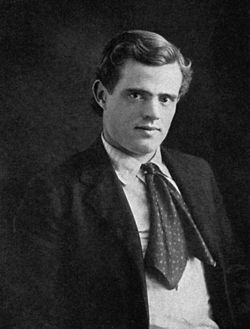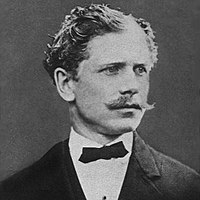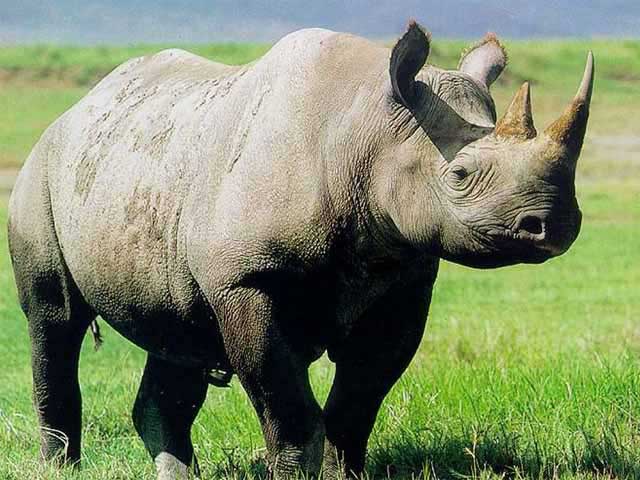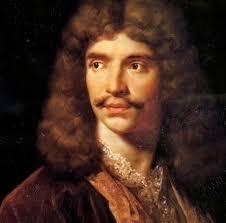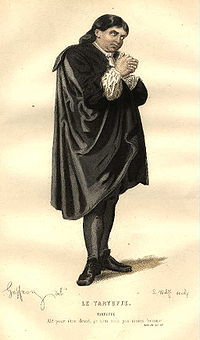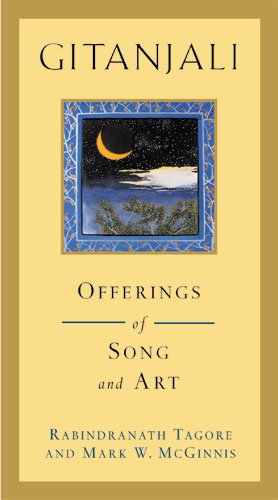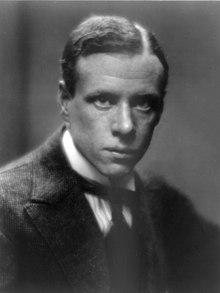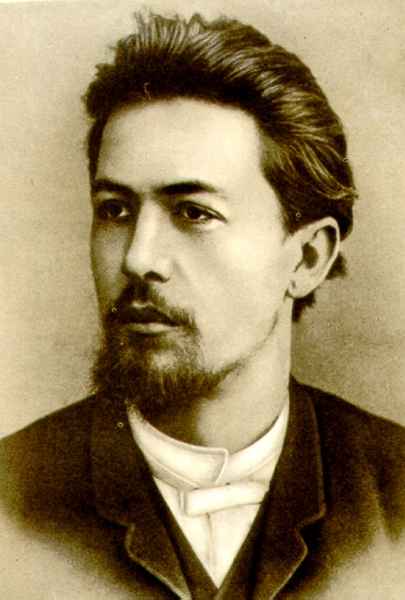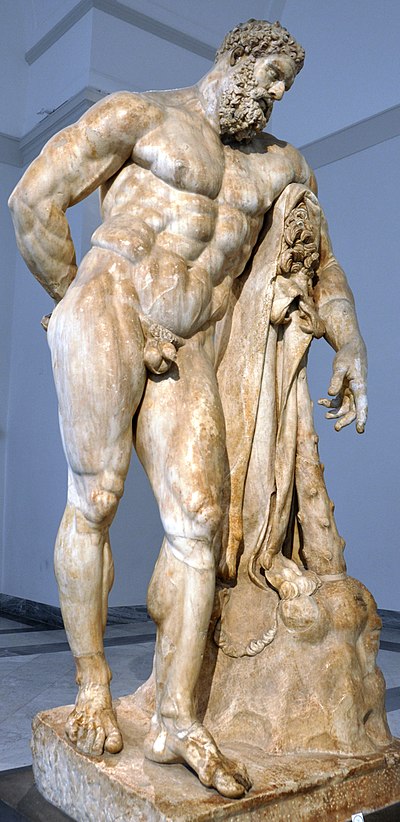What follows is a vastly simplified version of the Mahabharata. It is supposed to take 7 years of study to read, but I compressed it to 3,000 words or so. It is quite helpful for myth bonuses and tossups. I suggest you gain a basic knowledge of the Hindu gods before you read.
Here we go:
King Dushyant is an emperor of India. He goes to the woods and finds Shakuntala, and has a son with her. But being king, he must leave to go back to his realm. He gives Shakuntala a ring and instructs her to bring his son with her to him when he is old. Later, Shakuntala gives birth to Bharata.
Shakuntala later meets a sage, but forgets to feed him. Subsequently, she is cursed so that the person she is thinking of will forget her. Her hysteric pleas earn pity from the sage, however, and he says that the person will remember him when she shows him proof. Unfortunately, Shakuntala drops her ring in a river and it is eaten by a fish. She continues to the capital anyway, but Dushyant does not remember her. Just then, two fishermen bring in some fish they caught, cut one open, and lo and behold, the ring falls out. Dushyant remembers, marries Shakuntala, and makes Bharata his prince. Bharata goes on to unite all of India and institute a meritocracy that persists for several generations.
Later, a hereditary monarchy has been reinstituted, and Shantanu is the king. He first falls in love with Ganges, the personification of the river. She has children with him under the condition that he never question her actions. Because she’s hot, Shantanu agrees. They have 6 children, but Ganges drowns all of them. Shantanu, discovering this, decides that losing a 7th child isn’t worth it, so instead challenges her. She reveals her identity, informing him that she has been sending his sons to heaven (which is the best thing in Hindu mythology) and then vanishes, leaving Shantanu with his son Devavrata.
After his time with Ganges, Shantanu runs into another hot girl in the forest, the fisherman’s daughter Satyavati. But the fisherman won’t let his daughter marry unless he is assured that his grandson will be king. Shantanu can’t promise this due to his son Devavrata. However, because he’s a great guy, Devavrat promises to both abdicate his position and to never have children (read: never have sex) so that his dad can get with Satyavati. Because of this, he is renamed Bhishma and is granted the boon of immortality; he can only die when he wishes it.
Shantanu’s son Vichitravirya ascends to the throne, but he’s sort of a loser. Bishma wins him three wives, Amba, Ambika, and Ambikala. Amba does not want to marry Vichitravirya, and Bishma gives he back to her former husband-to-be. However, he feels this is an insult from Bishma, and refuses Amba. Amba blames this on Bishma, prays to Shiva to be reincarnated as Bishma’s killer, and then self-immolates (remember this, it’s important later).
So Vishitravirya now has two wives, but he’s impotent. So the scribe Vyasa (who writes the Mahabharata) has sex with the two wives instead. He’s a really scary dude though, so the first wife, Ambikala, turns pale in the act and gives birth to a pale son, Pandu. The second wife, Ambika, closes her eyes, and gives birth to a blind son, Dhritarashtra. Additionally, Vyasa has sex with a maid who is unafraid, who gives birth to Vidura.
Vidura, because he is low born, becomes prime minister of the kingdom. Pandu has two wives, Kunti and Madri. Kunti has the boon of being able to have sex with any god she wants at any time. When she was young, she tested this boon with Surya, a solar god. This produced Karna, but he was placed in a river because she was not yet married and had to avoid the scandal. Once she’s married to Pandu, the god she chooses is channeled through him (or something, it’s not really important). She has three children through this method; Yudhisthira with Yama, Bihma with Vagu, and Arjuna with Indra. She also shares this boon with Madri, who has twins, Nakla and Sahadeva, with the Ashwini, gods of medicine. These are the five Pandevas. They will be trained in combat by Drona with a spear, mace, bow, and swords respectively. Later, however, Pandu is cursed and leaves the kingdom, leaving Dhritarashtra as king.
Meanwhile, Dhritarashtra marries a woman from Afghanistan, Gandhari. Gandhari is sort of nuts. Because her husband is blind, she blindfolds herself to share his disability. When she agrees to marry Dhritarashtra, Bhishma says that she will have 100 sons. Subsequently, she gives birth to an amorphous ball of fetuses that are placed in 101 clay jars (100 boys, 1 girl). The first and second sons (and the most evil) are Duryodhana and Dushasana. The one girl is Dussala. The one good Kaurava is Yuyutsu.
So now we have the Pandevas and the Kauravas. These two groups will form the main conflict and story line of the Mahabharata, but that’s getting ahead of ourselves. First, Arjuna wins a wife in an archery contest. He is competing with Krishna (who withdraws because he’s Vishnu and can do whatever the hell he wants) and Karna, the 6th son of Kunti .The contest is to shoot a flying fish in the eye while aiming with a pool of water. Obviously this is ridiculous and no one can do it, but Karna and Arjuna, being the sons of Gods, both pull it off. But Draupadi (the wife they’re competing for) doesn’t want to marry Karna (who succeeds first) because he’s low born. So Arjuna wins.
But that would be too easy. Arjuna returns home and tells Kunti that he won something, neglecting to tell her what. She tells him that he must share it with his brothers. As such, Draupadi winds up married to all five of the Pandevas. This actually fulfills her prayer from a former life; she prayed to Shiva 5 times to have a good husband in her second life and then self-immolates. Shiva, laughing because she’s a moron, fulfills this wish with five husbands.
So as you can guess, the Kauravas don’t like the Pandevas. At all. They build the Pandevas a wax house with golden wood on the outside to make it look legit. They plan to burn the house down and kill them, but the prime minister Vidura warns the Pandevas with a riddle about a rat digging downwards. The Pandevas escape the trap and stay away for a while before returning, just to mess with Duryodhana and the other Kauravas.
Next, the Kauravas and the Pandevas split the kingdom. The Kauravas get the good half, with the city of Hastinapur, while the Pandevas get the empty, crappy, other half. Conveniently, the find and extinguish a forest fire that just happens to have an Asura (demon) architect named Mayasura inside, who then builds them the city of Indraprastha. This city is much better than the Kauravas, so the Pandevas win again.
A brief exploit here involved the defeat of the king Jarasandha. He was born in two halves from two different wives after they both ate half of a magical mango before being joined together by an Asura. He conquers and captures many other kings, but then opposes Yudhisthira as he attempts to spread Dharma throughout India. He kidnaps Draupadi and drags her to his palace, but Bhima rips him in half. These kings will become allies of the Pandevas down the line.
Yudhisthira, despite being the most virtuous of the Pandevas, has a bad gambling problem. He starts playing dice with Shakuni, the brother of Gandhari and uncle of the Kauravas. He first loses his kingdom, then all his posessions, and then actually sells the Pandevas into slavery. At this point, Duryodhana mocks Draupadi by slapping his thigh (calling her a whore essentially) and Dushasana drags her by her hair. Bhima swears that he will drink Dushasana’s blood for that. Remember both of these insults for later.
The slavery part is overturned by the sages, but the Pandevas do wind up going into exile for 12 years. In the 13th, they must remain hidden, or spend another 12 years in exile. So the Pandevas, along with Draupadi, go into the woods. Lots of stuff happens here, most of which we’ll ignore, but there are a couple important incidents.
Firstly, the Pandevas find a man in the forest who can’t start a fire. His matches were caught in the antlers of a dear, so the five brothers pursue the deer. In the chase they grow thirsty, and come to a lake. First Nakula and Sahadeva reach the lake. A voice tells them not to drink the water, but they ignore it, drink the water, and die. Second, Arjuna arrives .The same voice tells him not to drink the water. He ignores it, shoots arrows everywhere, drinks the water and dies. Then, Bhima reaches the lake, here’s the same voice, ignores it, hits the trees with his mace, drinks the water, and dies. Lastly, Yudhisthira reaches the lake, but does not ignore the voice. An Asura appears, and asks some philosophical questions. Yudhisthira gives the correct answers, then ousts the Asura as a god, Yama, who is his father
Because Yudhisthira is so virtuous, he is granted several boons. He first acts for one of Nakula and Sahadeva to be alive again, so that both Madri and Kunti have a living son. This is rewarded with another boon. He then asks for all his brothers to live. Again a virtuous request, so he gets another boon. He asks to always live a virtuous life. Yama says that Yudhisthira already does that, and grants him another boon. Lastly, Yudhisthira requests that the Pandevas remain hidden until the end of their exile.
The next story involves Bhima. Two Asuras live in the woods, one named Hidimba (male) and the other named Hidimbi (female). Hidimba sends Hidimbi to scout the Pandevas, but she falls in love with Bhima. Bhima kills Kidimba, marries Hidimba, and fathers Ghatotkacha, a bald guy who comes up later in the actual battle.
Lastly, Arjuna had been promised weapons from Indra on the condition that he receive the Pashupatastra, a trident shaped arrow, from Shiva. Arjuna goes to a tree and prays. After a while, a boar appears. Arjuna shoots the boar, but another hunter shoots it at the same time. Arjuna and this other hunters start fighting, but Arjuna realizes he is overmatched. He runs back to the tree and sacrifices a Ligam to Shiva only to see it appear on his opponent. He then realizes that he is fighting Shiva, and the battle stops. Subsequently, Shiva grants Arjuna the Pashupatastra. Indra and the rest of the Devas then give Arjuna a bunch of weapons. Additionally, Urvashi curses Arjuna to be a eunuch for a year for rejecting her. This winds up as a benefit, however, as it will hide Arjuna during his last year of exile.
The Pandevas arrive at the kingdom of Matsya, ruled by Virata, and take up secret identities to remain hidden. Nakula and Sahadeva become livestock herders, Arjuna a dance instructor for the princess, Bhima a cook, and Yudhisthi a minister to the king. Draupadi becomes a lady in waiting. Kichaka, a creepy general, tries to rape her, but Bhima rips him in half, and then kills his accomplices. But Duryodhana, back in his kingdom, here’s news of this, and realizes this must be Bhima. He prepares to attack the kingdom in order to reveal the Pandevas.
Yudhisthira advices the prince to take Arjuna as his charioteer. The prince is arrogant, saying he will fight the Kauravas by himself, but chickens out when he sees the famed fighters amongst them. Arjuna has to retrieve his weapons and fight them off himself, revealing himself in the process. Duryodhana believes he is victorious in exposing the Pandevas, but is actually one day late according to an alternate calendar. In this way, the exile of the Pandevas ends.
So now we’re 2,000 words in and we’re ALMOST at the main battle of the Mahabharata. The Pandevas and Kaurevas are running around gathering allies. The Kings the Pandevas freed from Jarasandha as well as Virata join their side, but the most coveted forces in the land are the Narayani Sena, the army of Krishna. Both Arjuna and Duryodhana get to Krishna while he is napping, but Krishna wakes up to see Arjuna t his feet first and Duryodhana at his head second. As such, he gives Arjuna a choice; his army, or Krishna as a non combatant on his side. Arjuna chooses the god, and Duryodhana gets the army. Arjuna, of course, made the wiser choice, because Krishna (who is Vishnu) can do whatever the hell he wants and essentially makes Arjuna undefeatable.
So here we are at the Kurukshetra War. The first day involves the Bhagavad Gita (which I discussed in a previous post) and the call to join the side each person finds honorable. Many on the side of the Kauravas, such as Bishma and Drona, do not want to fight the Pandevas, but are bound by honor to fight for Duryodhana, who has essentially stolen power from the old, blind Dhritarashtra. As an additional random detail, Arjuna’s chariot has a picture of Hanuman on it that makes it go faster. Like a racing stripe.
To cover the battle, we’ll just touch on all the major fights. The first is between Arjuna and Bishma with the help of Shikandi, who is Amba reincarnated. Bishma, who would normally be invincible due to his vow of chastity, will not fight the male Shikandi because he was a female in a past life. Arjuna then riddles Bishma with arrows, crying as he does so. Bishma will die on this bed of arrows, though not immediately. With Bishma dead, command of the Kaurava army transfers to Drona.
The next major battle involves the son of Arjuna, Abhimanyu. The Kaurava army formed a spiral battle formation kown as the Chakravyuha. Only Arjuna and Krisna know how to defeat this formation, btu they are distracted by the King of the Samsaptaka. Abimanyu knows how to penetrate the formation, but not how to escape it. He’s trapped inside and fights 13 enemies at once, something clearly against the laws of combat. He fights bravely, but is killed by Karna, Jayadratha, and other soldiers.
Arjuna is enraged by this, and swears to kill Jayadratha by the end of the next day or he will light himself on fire. Duryodhana knows that if Arjuna dies, the battle is won, so he places Jayadratha at the back of his army. Arjuna simply spams all of his OP god weapons he got while in exile, and with a trick sunset from Krishna, kills Jayadratha. Additionally, he escapes the curse played on Jayadratha (anyone who makes his head touch the ground will die). He shoots the head threw the air to land in the hands of Jayadratha’s father, who then drops the head and dies as well.
The next fight involved Drona. To defeat him, the Pandavas use a trick. Drono has a son named Ashwatthama, but there is also an elephant in the battle of the same name. Bhima kills this elephant with his mace, and then tells Drono that Ashwatthama is dead, without specifying that he is talking about the elephant. Drona does not believe him at first, but Yudhisthira confirms it. Since Yudhisthira is renowned for his virtue, Drona believes him and despairs, collapsing on the battlefield. Arjuna orders his capture, but Dhrishtaydumma, the son of the brother of Draupadi and commander of the Pandava army, kills him.
The next battle is between Karna, the new commander of the Kauravas, and Ghatotkacha, the half Asura son of Bhima. Karna, who is known for his extraordinary charity, had previously given his golden armor to a beggar who turned out to be Indra in disguise. In exchange, he received one of Indra’s extremely powerful thunderbolts. With Ghatotkacha destroying the Kauravas, Karna uses this lightning bolt, killing Ghatotkacha.
Now, Arjuna will fight Karna. Karna promises to his mother, Kunti, that he will spare all of the Pandavas aside from Arjuna. He defeats them all before battling with Arjuna. This battle is very evenly matched, with Krishna saving Arjuna at one point. But the curses Karna had acquired over his life caught up with him. His chariot became stuck in the mud. Normally, this would be grounds for combat to stop, but Krishna tells Arjuna to kill him anyway, which he does.
At this point, the Kauravas are all but defeated. Bhima has killed Dashashana and drunk his blood, fulfilling his vow from earlier in the story. Duryodhana is turned to iron by the eyes of Gandhari, who has unique power after blinding herself for 40 years. However, Krishna shames Duryodhana into wearing a banana leaf (basically underwear) when Gandhari gives this blessing, leaving his thighs vulnerable. Though these areas are usually off limits, Bhima is given permission to attack them by Krishna, again getting revenge for a slight against Draupadi. Duryodhana then bleeds to death.
The last opponent of the Pandevas is Aswatthama, the son of Drona. He sneaks into the camp of the Pandavas and kills each of their children, as well as his father’s killer, Draupadi makes Arjuna swear to bring back the jewel Ashwatthama has in his forehead, so Arjuna sets out in pursuit. The two fight and fire their astras (another OP god weapon) at each other, but Krishna intercepts them saying that they will destroy India if they are used. Arjuna takes his back, but Ashwatthama redirects his to the son of Abhimanyu, Parikshit, who is just being born. This kills him, but Krishna revives him and takes the jewel from Ashwatthama. This is enough to satisfy Draupadi, who shows mercy, and marks the end of the conflict.
We’re almost done now. Krishna and his army are cursed by Gandhari to die by maces, because she feels he is responsible for the death of all of her sons. The Pandavas go on a march in the mountains, where a dog follows them. Each, including Draupadi, falls and dies on the trip, until only Yudhisthira remains at the peak. At this point, Indra invites him to heaven, but he insists on taking the dog, which reveals itself to actually be Yama. This was the first of two tests that Yudhisthira passes.
Upon entering heaven, he finds he is surrounded by the Kauravas rather than his brothers. He asks to go and stay in hell instead so that he can be with his family. In doing so, he passes the second test and earns all of the Pandavas their place in heaven. Meanwhile, the Yadavas all die when, in a drunken fit, they kill each other with magical maces that grow from the sea. Krishna later dies in the forest and ascends to heaven. Lastly, Parikshit becomes the new king of India, brining us, at last, to the end of the Mahabharata.
